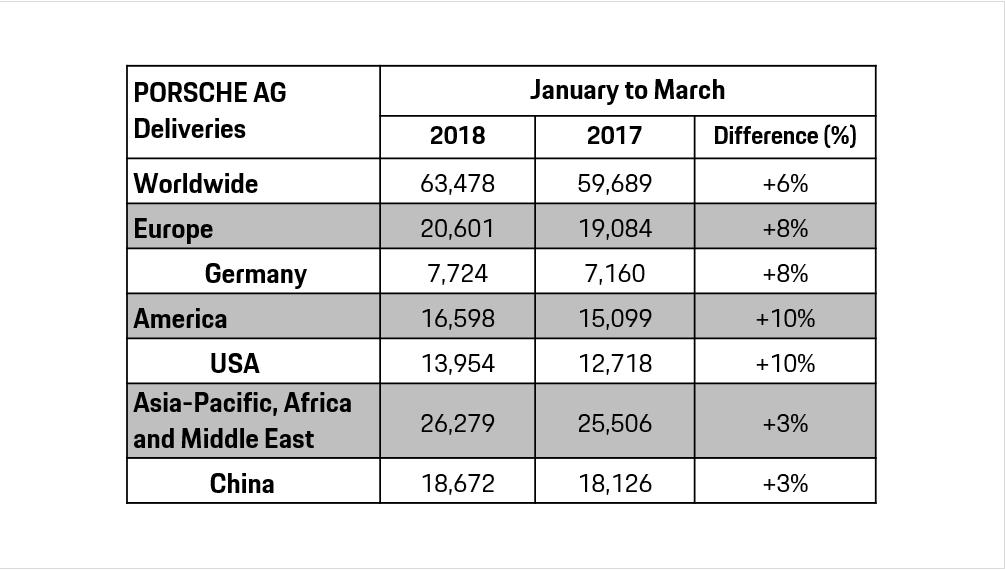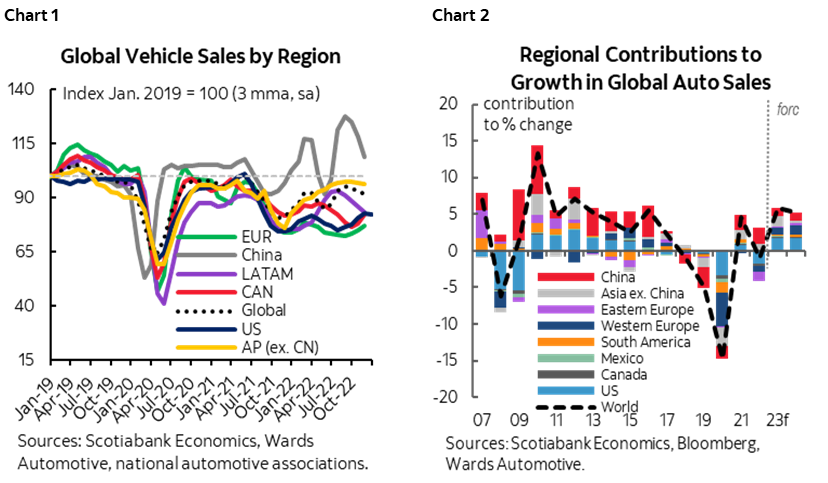BMW, Porsche, And The Complexities Of The Chinese Auto Industry

Table of Contents
The Allure and Challenges of the Chinese Luxury Car Market
The allure of the Chinese luxury car market is undeniable. Fueled by a burgeoning middle class with rising disposable incomes and a growing aspiration for premium lifestyles, demand for luxury vehicles is soaring. This growth isn't just about purchasing power; it's about status, success, and a desire for sophisticated, technologically advanced automobiles. However, this appealing market is far from a cakewalk. The competition is cutthroat, with established domestic brands like Geely and Great Wall Motors vying for market share alongside other international players such as Mercedes-Benz, Audi, and Lexus.
Understanding the unique preferences of Chinese luxury car buyers is paramount. While brand prestige remains a significant factor, Chinese consumers increasingly prioritize technological features, customization options, and a seamless ownership experience.
- Growing middle class driving demand: A rapidly expanding middle class fuels the desire for aspirational products like luxury cars.
- Preference for SUVs and electric vehicles: SUVs dominate the market, with a strong and rapidly growing preference for electric and hybrid vehicles.
- Importance of online presence and digital marketing: Reaching Chinese consumers requires a sophisticated digital marketing strategy, leveraging social media and e-commerce platforms.
- Government regulations and policies influencing the market: Government initiatives, emission standards, and import tariffs significantly impact the market dynamics.
BMW's Strategy in China: Localization and Innovation
BMW boasts a long and successful history in China, establishing a significant market share through a carefully crafted strategy centered around localization and innovation. Their commitment to manufacturing within China through joint ventures and local partnerships demonstrates a deep understanding of the market's nuances. This approach allows them to tailor models to Chinese preferences, offer competitive pricing, and quickly respond to evolving consumer demands.
BMW's investment in research and development within China is further evidence of their long-term commitment. This focus on innovation extends to electric vehicles (EVs) and autonomous driving technologies, catering to the growing demand for sustainable and technologically advanced automobiles. However, BMW continues to face challenges, including intense competition, supply chain complexities, and the need to continually adapt to shifting consumer expectations.
- Joint ventures and local partnerships: Strategic alliances with Chinese companies ensure efficient production and distribution networks.
- Investment in research and development within China: Focusing R&D efforts within China allows BMW to better understand and respond to local needs.
- Marketing campaigns targeting specific demographics: Tailored marketing strategies resonate with different consumer segments within the diverse Chinese market.
- Adapting to the changing regulatory environment: Navigating government regulations and policies is essential for long-term success.
Porsche's Approach: Exclusivity and Brand Building
Porsche's approach differs significantly from BMW's. Their strategy revolves around maintaining exclusivity and leveraging their established brand prestige. The Porsche name evokes images of performance, heritage, and a unique driving experience, resonating strongly with affluent Chinese consumers. Their focus is on high-end models and bespoke customization options, catering to a clientele that values exclusivity and personalized service.
Maintaining this image of exclusivity requires a delicate balance between global brand consistency and adapting to local market needs. Porsche’s marketing emphasizes brand experience and personalized service, nurturing relationships with high-net-worth individuals and leveraging digital channels to enhance brand engagement.
- Focus on high-end models and bespoke options: Catering to discerning customers seeking premium features and personalized customization.
- Building strong relationships with high-net-worth individuals: Porsche prioritizes personalized service and building long-term relationships with its high-value clientele.
- Investing in digital channels and online experiences: Leveraging digital platforms to reach and engage with potential customers.
- Strategies for managing brand perception and authenticity: Maintaining brand image and authenticity is paramount in a market sensitive to brand reputation.
The Broader Context: Government Policies and Infrastructure
The Chinese government plays a pivotal role in shaping the automotive industry, influencing everything from production quotas and emission standards to the development of charging infrastructure for electric vehicles. Initiatives like "Made in China 2025" aim to boost domestic innovation and technological advancement, while substantial subsidies incentivize the adoption of new energy vehicles (NEVs). The rapid development of charging infrastructure is crucial for expanding EV market penetration, though challenges remain in terms of network coverage and charging speed consistency.
Intellectual property rights remain a significant concern, impacting foreign investment and fostering intense competition among domestic and international brands. Navigating this complex regulatory landscape is crucial for success in the Chinese auto market.
- Impact of "Made in China 2025" initiative: This initiative aims to enhance domestic technological capabilities and competitiveness.
- Government incentives for electric vehicle adoption: Substantial subsidies and tax breaks drive the adoption of NEVs.
- Development of charging infrastructure and its challenges: Expanding charging networks is crucial for widespread EV adoption, but challenges remain.
- Regulations impacting foreign investment and ownership: Government regulations significantly influence foreign investment and market access.
Understanding the Future of BMW, Porsche, and the Chinese Auto Market
The Chinese auto market, with its complexities and vast potential, presents both significant challenges and unparalleled opportunities for global brands. BMW and Porsche, with their differing yet equally effective strategies, illustrate the key elements of success: localization, innovation, and a deep understanding of the unique preferences of the Chinese consumer. The continued growth of the luxury car segment in China is undeniable, making it a crucial market for luxury brands.
To gain a deeper understanding of this dynamic landscape and the strategic maneuvers employed by automotive giants like BMW and Porsche, further exploration is recommended. Dive deeper into "Chinese auto market analysis," study the specifics of the "luxury car market China," examine detailed "BMW China strategy" reports, and analyze "Porsche China sales" data. This will provide a more comprehensive picture of the opportunities and complexities inherent within this crucial sector of the global automotive industry.

Featured Posts
-
 Understanding The Plot Of Resident Evil Afterlife
May 13, 2025
Understanding The Plot Of Resident Evil Afterlife
May 13, 2025 -
 China Market Analysis The Impact On Bmw Porsche And The Global Auto Industry
May 13, 2025
China Market Analysis The Impact On Bmw Porsche And The Global Auto Industry
May 13, 2025 -
 Beyonces Rigorous Script Demands The Hollywood Producers Five Revisions
May 13, 2025
Beyonces Rigorous Script Demands The Hollywood Producers Five Revisions
May 13, 2025 -
 Foto Galeriya 10 Aktori Proyavili Geroystvo Izvn Ekrana
May 13, 2025
Foto Galeriya 10 Aktori Proyavili Geroystvo Izvn Ekrana
May 13, 2025 -
 Chris Packham Supports Hug A Slug Campaign A Look At The Best Sex Show On Earth
May 13, 2025
Chris Packham Supports Hug A Slug Campaign A Look At The Best Sex Show On Earth
May 13, 2025
Latest Posts
-
 Fans React Tommy Furys News And Molly Mae Hagues Interest
May 14, 2025
Fans React Tommy Furys News And Molly Mae Hagues Interest
May 14, 2025 -
 Tommy Fury And Molly Mae Hague Parallel Strategies For Sharing Personal News
May 14, 2025
Tommy Fury And Molly Mae Hague Parallel Strategies For Sharing Personal News
May 14, 2025 -
 Tommy Furys Bold Stage Appearance A Look Back
May 14, 2025
Tommy Furys Bold Stage Appearance A Look Back
May 14, 2025 -
 Tommy Fury Update Molly Mae Hagues Response To His Confession
May 14, 2025
Tommy Fury Update Molly Mae Hagues Response To His Confession
May 14, 2025 -
 Is Tommy Fury Copying Molly Mae Hagues Approach To Public Relations
May 14, 2025
Is Tommy Fury Copying Molly Mae Hagues Approach To Public Relations
May 14, 2025
